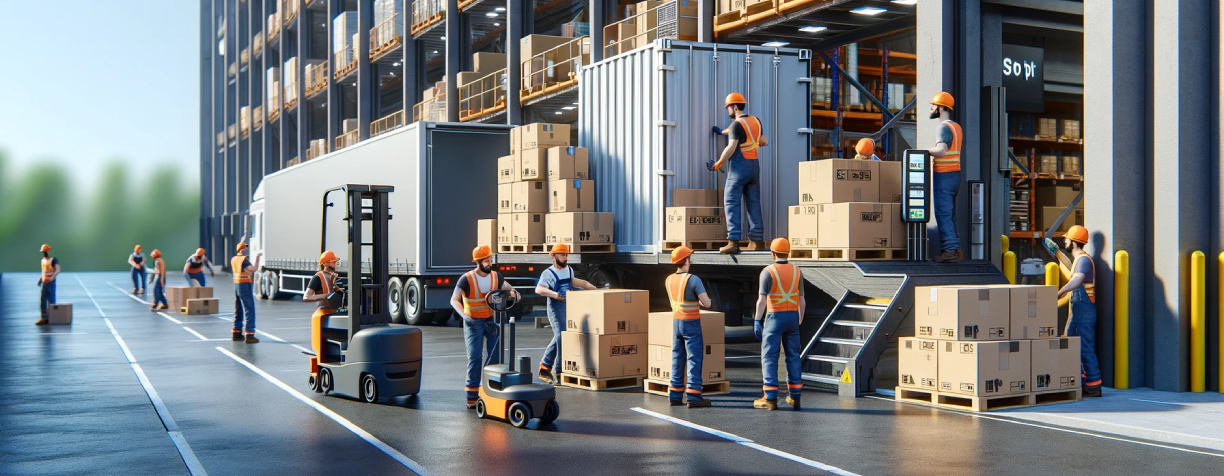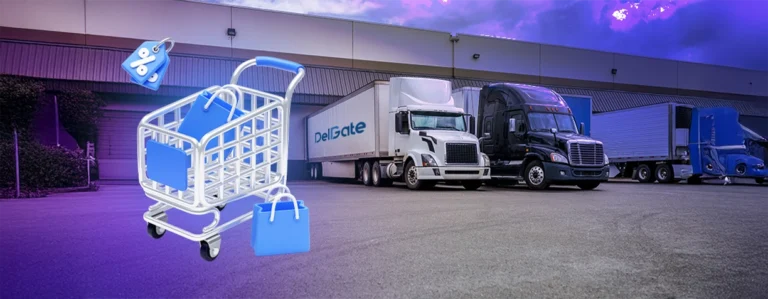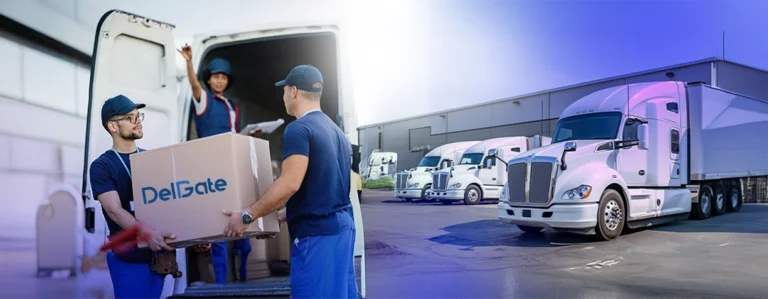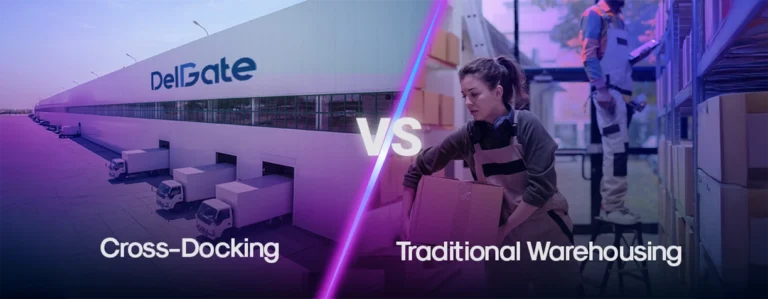In the rapidly evolving ecommerce landscape, the choice of warehouse can significantly affect the efficiency of your operations, customer satisfaction, and overall business success. Warehouses serve as crucial nodes in the supply chain, each type offering distinct advantages depending on your business needs. This guide delves into 15 types of warehouses and provides insights on selecting the most suitable one for your ecommerce venture.
Table of Contents
Types of Warehouses
Warehousing encompasses a diverse array of facilities, each designed to meet specific logistical needs and operational strategies. From traditional storage warehouses that primarily focus on holding goods for a significant period to highly automated distribution centers geared towards rapid throughput, the landscape of warehousing options is broad and varied. This variety extends to specialized warehouses like cold storage facilities for perishable items and bonded warehouses for stored goods awaiting customs clearance.
1. Public Warehouses
Types of warehouses like Public Warehouses provide an ideal storage solution for businesses seeking operational flexibility without the need for significant capital investment. By offering storage space on a rental basis, these facilities cater to companies with variable inventory needs, allowing them to scale up or down based on seasonal demand or market fluctuations.
This flexibility, combined with the cost-effectiveness of sharing space and services with other tenants, makes public warehouses an attractive option for small to medium-sized enterprises (SMEs), or any business looking to minimize upfront costs while retaining the ability to respond quickly to changes in their storage requirements. With the added benefits of strategic locations near major transportation hubs and the availability of value-added services like inventory management and order fulfillment, public warehouses stand out as a practical and efficient warehousing solution.
2. Private Warehouses
owned and operated by individual companies for their exclusive use, present an optimal solution for businesses with stable and high-volume storage needs.
This type of warehousing allows companies to have complete control over their storage facilities, inventory management, and distribution operations, ensuring that operations can be tailored to meet specific business requirements and standards. Ideal for large retailers, manufacturers, and distributors, private warehouses offer the advantage of security, customization, and efficiency in handling products.
Although they require a significant upfront investment in terms of capital, land, and infrastructure, the long-term benefits of different types of warehouses include cost savings on storage, greater control over logistics operations, and the ability to adapt the space and processes to the evolving needs of the business, making them a worthwhile consideration for businesses looking to optimize their supply chain over time.
3. Bonded Warehouses
Government-licensed facilities for storing imported goods until customs duties are paid, perfect for international traders.
4. Distribution Centers
The powerhouse of ecommerce logistics, types of warehouses, particularly distribution centers, are designed to expedite the flow of goods from suppliers to consumers with minimal delay. Unlike traditional warehouses that emphasize storage, distribution centers prioritize the swift handling, sorting, and redistribution of products to ensure they reach the end customer as quickly as possible.
This focus on speed and efficiency is crucial for ecommerce businesses that operate in a fast-paced retail environment where customer satisfaction hinges on rapid delivery times. Equipped with advanced technology for inventory management and order processing, distribution centers streamline the supply chain, reducing bottlenecks and enhancing the overall responsiveness of ecommerce operations to market demands.
5. Climate-Controlled Warehouses
Essential for goods that require specific temperature or humidity levels, such as food and pharmaceuticals.
6. Automated Warehouses
represent the cutting edge of logistics technology, leveraging robotics and automation to significantly enhance the efficiency and accuracy of inventory management and order fulfillment processes. In these technologically advanced types of warehouses, tasks traditionally performed by humans, such as picking, packing, storing, and retrieving items, are carried out by machines and AI-driven systems. This not only speeds up operations but also reduces the likelihood of errors, ensuring that orders are processed swiftly and accurately.
For ecommerce businesses, automated types of warehouses are a game-changer, enabling them to meet the growing consumer demand for fast delivery times and impeccable service. By investing in automation, companies can scale their operations more effectively, handle larger volumes of orders, and maintain a competitive edge in the fast-paced ecommerce marketplace.
7. Fulfillment Centers
Specialized in processing, packing, and shipping orders directly to customers, streamlining the ecommerce operation.
Read more: When is a Good Time to Hire a Fulfillment Center?
8. Cold Storage Warehouses
Designed for products that need to be refrigerated or frozen, crucial for perishable goods.
Read more: Critical Role of Temperature-Controlled Warehousing for Sensitive Products
9. Hazardous Material Warehouses
Equipped to safely store hazardous substances, adhering to strict regulatory standards.
10. Cross-Docking Warehouses:
Facilitate the direct transfer of goods from inbound to outbound transportation through cross-docking, reducing storage time.
11. On-Demand Warehouses
provide a flexible and scalable solution for businesses that experience seasonal surges or unpredictable fluctuations in inventory levels. This modern warehousing option allows companies to secure storage space on a short-term basis, adapting to their logistical needs without committing to long-term contracts or incurring the high costs associated with maintaining their own warehouse facilities.
12. Consolidation Warehouses
Collect products from various suppliers in one location before shipping, helping to reduce transportation costs.
Ideal for seasonal businesses, startups testing new markets, or any organization facing variable demand, on-demand types of warehouses offer a cost-effective way to manage inventory levels efficiently, ensuring that businesses can respond swiftly to market changes and customer demands while controlling overheads and improving their supply chain agility.
13. Government Warehouses
Owned and operated by the government for storage of government-owned goods or regulatory purposes.
14. Co-operative Warehouses
offer a unique and economically advantageous solution for storage needs, particularly for small and medium-sized businesses. Owned and operated by cooperative societies, these warehouses provide their members with access to storage facilities at rates more favorable than those typically available in the market. This collaborative approach allows members to benefit from economies of scale, reducing individual costs while enhancing logistical efficiency and operational flexibility.
Ideal for businesses that may not require or cannot afford private warehousing facilities, co-operative types of warehouses enable members to leverage collective resources, facilitating better inventory management and distribution capabilities without the hefty price tag of private or dedicated warehousing solutions. Through shared interests and mutual support, co-operative warehouses exemplify how collaboration can lead to significant savings and operational benefits for their members.
15. Smart Warehouses:
Smart warehouses embody the cutting edge of logistics and supply chain management, leveraging Internet of Things (IoT) devices, automation, and advanced technologies to dramatically enhance operational efficiency and accuracy.
These technologically advanced facilities utilize sensors, robotics, and data analytics to automate various warehouse operations, from inventory tracking to order fulfillment, ensuring real-time visibility and control over stock levels. The integration of IoT and smart systems facilitates seamless communication between different parts of the supply chain, enabling predictive maintenance, optimizing resource allocation, and minimizing downtime.
By adopting such innovations, smart types of warehouses not only streamline their processes but also significantly reduce operational costs and errors, boost productivity, and improve overall customer satisfaction by ensuring faster and more reliable delivery services. This technological integration represents a paradigm shift in how goods are stored, managed, and distributed, setting a new standard for efficiency in the ecommerce and manufacturing sectors.
How to Choose the Right Warehouse for Your Ecommerce Business
Selecting the appropriate warehouse type is vital for optimizing your supply chain, reducing costs, and ensuring customer satisfaction. Here are key considerations for making an informed decision:
Understand Your Business Needs
Inventory Size and Volume: Assess your current and projected inventory to determine space requirements.
Product Type: Consider special storage needs, such as temperature control or security for high-value items.
Order Volume and Frequency: High order volumes may benefit from automated or fulfillment centers to streamline processing.
Read more: Warehouse Space vs. Industrial Space – What’s the Difference?
Evaluate Location and Accessibility
Proximity to Customer Base: Reducing the distance to your customers can lower shipping costs and times.
Access to Transportation: Ensure the warehouse is well-connected to major transport networks for efficient distribution.
Consider Financial Implications
Cost Structure: Analyze the cost-benefit aspect, including rent, utilities, and operational expenses, against the benefits of speed, efficiency, and scalability.
Flexibility and Scalability: Choose from types of warehouses that can accommodate your business growth and seasonal fluctuations without excessive costs.
Assess Technology and Services
Integration Capabilities: The ability to integrate with your ecommerce platform and supply chain software is crucial for real-time inventory management and order tracking.
Value-Added Services: Some types of warehouses offer additional services like kitting, packaging, and returns management, which can enhance your operational efficiency.
Regulatory Compliance and Security
Compliance: Ensure the warehouse meets all regulatory requirements, especially for specialized products.
Security Measures: Evaluate the security protocols in place to protect your inventory from theft, damage, or loss.
Choosing the right types of warehouse involves a strategic analysis of your business model, inventory needs, and growth projections. By considering these factors, you can select a warehouse type that not only meets your current needs but also supports your long-term business objectives, ensuring a streamlined supply chain and satisfied customers.
Read more: Piece Picking Guide for Ecommerce Businesses
FAQ:
1. What is the difference between a public and a private warehouse?
A public warehouse offers storage facilities on a rental basis to multiple clients, providing flexibility and cost-effectiveness without significant investment. In contrast, a private warehouse is owned and used exclusively by a single company, suitable for businesses with stable and high-volume storage needs, offering more control over operations and security.
2. What makes distribution centers unique compared to traditional warehouses?
Distribution centers, a key type of warehouse, focus on quickly moving goods rather than storing them, optimizing the supply chain for ecommerce businesses. They are designed to efficiently process and redistribute products to retail outlets or direct to customers, minimizing storage time and expediting delivery.





